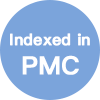A Special Interview with Prof. Gregor Reid - Fellow of the Royal Society of Canada and 2024 Highly Cited Researcher
On December 17, 2025, the Editorial Office of Microbiome Research Reports (MRR) was delighted to have a special interview with Prof. Gregor Reid, a Distinguished Professor Emeritus at Western University, Fellow of the Royal Society of Canada, and 2024 Highly Cited Researcher.

Prof. Gregor Reid is renowned for his pioneering work in the field of probiotics and beneficial microbes. He is a Distinguished Professor Emeritus at Western University and a retired Scientist at the Lawson Research Institute. Throughout his illustrious career, Prof. Reid made significant contributions, including the development of novel probiotic therapies that have benefited millions worldwide, particularly women. He has authored over 600 peer-reviewed publications, which have been cited more than 60,000 times, and has delivered over 650 talks across 54 countries. Prof. Reid's exceptional expertise has been recognized with numerous honors, including his election as a Fellow of the Royal Society of Canada and the Canadian Academy of Health Sciences. He has also been awarded an Honorary Doctorate from Örebro University in Sweden and the Distinguished Alumni Award from Massey University in New Zealand.
Interview Questions:
1. How did you first get started in probiotics research? What drew you to this field?
2. In your opinion, what has been the most significant breakthrough in probiotics research over the past few decades?
3. Among your many accomplishments, which research achievements are you most proud of?
4. How do you define a high-quality probiotic?
5. What is your assessment of the current state of probiotics research? Are there any areas that remain underexplored?
6. In your studies on probiotics for women’s health, particularly vaginal health, what aspects have you found most promising or challenging?
7. Given the wide variety of probiotic products on the market, quality can vary greatly. How can scientists better support the standardization and regulation of probiotic products?
8. With the rapid development of human microbiome research, do you think artificial intelligence and big data can help uncover new functions of probiotics and the microbiome?
Watch the following video for insights from Prof. Gregor Reid :
Editor: Fiona Yin
Language Editor: Catherine Yang
Production Editor: Ting Xu
Respectfully Submitted by the Editorial Office of Microbiome Research Reports









